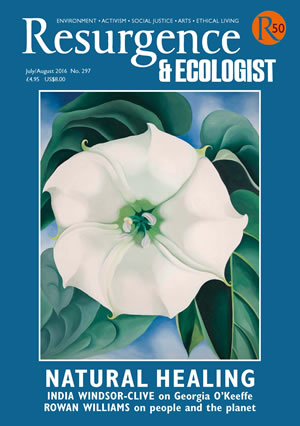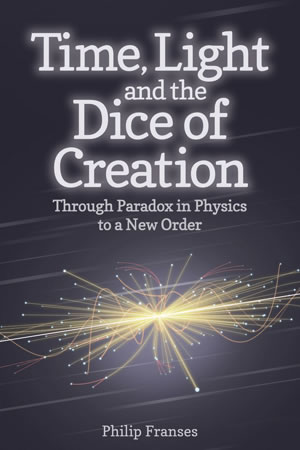Philip Franses, my colleague on the MSc in Holistic Science at Schumacher College, has written a remarkably innovative and remarkably challenging book. Innovative, because it puts together the paradoxical, ambiguous and essentially incomprehensible insights from relativity and quantum theories with the inner experience of searching for authentic wholeness. Challenging, because this is not light reading – unless perhaps you are very familiar with both physics and the search for meaning.
You need an especially calm and steady mind to understand the many nuggets of deep insight that lie in wait for you in this book, insights perceptible by the intuitive mind with its capacity for understanding, or perhaps sensing, the relationships between space, time and chance. Franses takes us on a journey of discovery into a series of paradoxes in physics (division/unity, darkness/light, past/future, chance/order, potential/expression and emptiness/form) that baffle our everyday minds, showing how these paradoxes need each other to bring forth their harvest of felt experience of the immense, unexpected living richness of the present moment.
The book is organised “like the faces of a dice” so that “each opposition fits to add to the significance of the previous ones”, since “In a dice, the separate faces require opposition to present their particular possibility. And similarly here, the paradoxical opposition of various theories and predictions of physics face their partial perspectives to a deeper, whole truth of experience.”
In the first section of the book, The Dice of Existence, the opposite faces of Franses’ dice are Bohr and Heisenberg, Pauli and Jung, Bohm and Bortoft, and Newton and Leibnitz, all described in the light of the significance of the physics not principally as an academic endeavour, but rather as a doorway into a deep realisation of meaning in the very wholeness of everyday life.
I found it particularly interesting how, early on in the book, Franses shares his understanding of this pervasive wholeness by stitching together a key moment in the development of quantum theory – namely the meeting between Bohr and Heisenberg in wartime Denmark – with the psychological state of Western culture as a whole at the time. According to Franses, the realisation by these two geniuses that the atom could be split to make a particularly destructive bomb mirrored the dangerous inner split within humanity that has by no means been overcome 100 years after the appearance of this pivotal insight in physics. As he says, “Throughout the history of physics, the way the relationship of the individual to the world has been interpreted has determined how mathematics has been turned into the world picture of physics.”
In the second section, The Dice of Renewal, we discover how chance becomes experiential, allowing an individual to “[surrender] itself, outside any predefined structure, to a journey of discovery, where order is introduced only at the end by the fulfilment of wholeness”. In the final section, Creation, existence and renewal hold the paradoxical ambiguity between energy and time to discover how both mythological and chronological aspects of time underlie reality, “in the fulfilling of the experiential, participative journey into the nature of wholeness”.
I experienced several powerful openings into the rich perspectives offered by Franses as I worked intensely with this text, sometimes savouring a sentence over and over for many minutes on end, an exercise I would recommend to readers of Resurgence & Ecologist willing to embark on this demanding but hugely rewarding journey.







